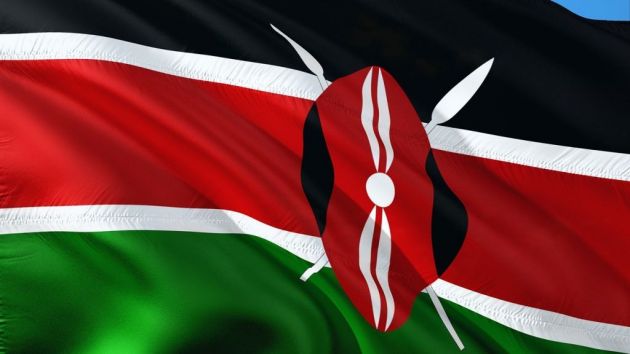Is Ban on Work on Sunday in Stores Realistic After Coronavirus Crisis? ŌĆō Union's Request Supported by Church
 Wednesday, 13.05.2020.
Wednesday, 13.05.2020.
 15:24
15:24

This January, the Ministry of Trade adopted the decision on forming a task force which would be in charge of, as said at the time, ŌĆ£looking into all the aspects of the potential decision on the ban on work of stores on Sundays in Serbia.ŌĆØ
Minister of Trade, Tourism and Telecommunications Rasim Ljajic said at the time that it pertained to 300,000 people and that the industry accounted for 10% of Serbia's GDP, with 15% of all employees in Serbia working in this sector.
ŌĆō We need to take care of those people, their interests and rights, whereas, on the other hand, we need to take care of our economy and see what kind of impact this would have on it ŌĆō Ljajic said at the time.
Commissioner for Protection of Equality Brankica Jankovic welcomed the decision of the Ministry of Trade, Tourism and Telecommunications to form the task force and reminded that she had filed an initiative for the amendment to the Law on Trade in mid-December 2019.
In the meantime, ASNS announced that the support for the initiative among the store chains and the citizens was growing. In late January, Serbian Minister of Labor, Employment, Veteran and Social Policy Zoran Djordjevic said that the issue should be settled between the employees and the workers and that the decision to ban work on Sunday would have a negative impact on tourism, a growing industry in Serbia.
We looked into whether the coronavirus crisis had changed anything when it comes to this topic.
ASNS: Coronavirus crisis an argument for implementation of ban on work on Sunday
The president of ASNS, Ranka Savic, believes that, in the time of the pandemic, ŌĆ£many of us have not learned anything or gone down a different road, better and more humane, a road of solidarity.ŌĆØ
ŌĆō Our political elite is doing as usual, even slightly more aggressively, as the election is getting closer. We are fully aware that only one man makes decisions in this country, the president of Serbia. My expectations that the global pandemic will put human beings in the center of the focus have not come true. The crisis has shown all the vulnerability of people, citizens and workers, but also the urgency with which these problems need to be solved. When the worker is jeopardized, the entire economy, culture and the state grind to a halt ŌĆō she emphasizes.
She adds that the logical conclusion and the consequence of the situation would be for the focus to be placed on ordinary people and their needs.
ŌĆō A worker needs to have a free Sunday, to spend it with the family and friends. ASNS will once again make an initiative for the work on Sunday to be banned, as coronavirus has taught us a good lesson. It will serve as another argument for seeking this ban. Another new argument is the support of the Serbian Orthodox Church and Patriarch Irinej, whom we have asked to take a position on the initiative, to which they have given their blessing ŌĆō Savic says for eKapija.
She also notes that they are aware of the economic crisis and its consequences, but that they are also convinced that the ban on work on Sunday will not have an essential impact on the situation in Serbia.
ŌĆō The price of the ban on work on Sunday is small, and the benefits are great, regarding the health, happiness and psychological peace of store employees ŌĆō she says.
Jankovic: Most important thing to mitigate consequences to economy and citizens
Commissioner for Protection of Equality Brankica Jankovic says that, at the moment, the most important thing is to mitigate the consequences to the economy and the citizens after a two-month fight against the spreading of coronavirus and to carry out the protection measures, which are still in effect.
ŌĆō We shouldn't forget that there's a risk of the virus coming back and that public health protection is still the most important task for all. I believe that there are priorities that each of us needs to understand and support, each in their own field ŌĆō she adds.
She points out that coronavirus has once again confirmed the fact that sudden life circumstances can change even the best plans:
ŌĆō At the moment, the most important thing is to take measures for the recovery of the economy, to save jobs, to help vulnerable groups such as the unemployed, the poor, or the Romani people. It's important to make efforts to strengthen the healthcare system, as this experience has taught us that we should do everything in our power to secure an efficient functioning of all public services. It is now quite clear that safety risks, challenges and threats in the future will certainly include these kinds of issues, affecting the entire society, economy included.
Ban on Sunday work in other countries
In the region, although the topic has been discussed in Bosnia and Herzegovina and Croatia, the idea was realized in March 2019 only in Montenegro.
In the world, Greece, Austria, Belgium, Cyprus, the Czech Republic, France, Germany, Hungary, Iceland, Luxembourg, the Netherlands, Spain, Poland and Great Britain have clear rules about who can or cannot work on Sundays, as the BBC News (in Serbian) reported last year. Italy had planned to implement this ban, but economists then calculated that such a decision could cost the country over EUR 10 billion.
In addition to this model, there is also the Scandinavian one, where the implementation of a four-day work week is advocated.
Aleksandra Kekic
 Asocijacija slobodnih i nezavisnih sindikata Beograd
Asocijacija slobodnih i nezavisnih sindikata Beograd
 Savez samostalnih sindikata Srbije
Savez samostalnih sindikata Srbije
 Ministarstvo turizma i omladine Republike Srbije
Ministarstvo turizma i omladine Republike Srbije
 Ministarstvo za rad, zapo┼Īljavanje, bora─Źka i socijalna pitanja Republike Srbije
Ministarstvo za rad, zapo┼Īljavanje, bora─Źka i socijalna pitanja Republike Srbije
 Vlada Republike Srbije
Vlada Republike Srbije
 Srpska pravoslavna crkva
Srpska pravoslavna crkva
 Poverenik za za┼Ītitu ravnopravnosti Beograd
Poverenik za za┼Ītitu ravnopravnosti Beograd
Most Important News
06.04.2024. | Agriculture
Preconditions for Placement of Fresh Blueberries and Dried Plums in Chinese Market Secured

16.04.2024. | News
Jovan Ciric, Leasing Director Retail MPC Properties ŌĆō MPC Echo symbolizes our desire for good ideas and innovative endeavors to spread freely and bring about positive changes

16.04.2024. | News
10.04.2024. | Finance, IT, Telecommunications, Tourism, Sports, Culture
Creative Industry ŌĆō What This Serbian Economy Sector Worth EUR 2 Billion Encompasses

10.04.2024. | Finance, IT, Telecommunications, Tourism, Sports, Culture
15.04.2024. | Energy, Industry
Vinca Solid Waste Management Center to start producing heating and electrical energy in the next month

15.04.2024. | Energy, Industry
16.04.2024. | News
Economy Fair in Mostar opens ŌĆō 26 companies from Serbia exhibiting

16.04.2024. | News
15.04.2024. | News
Serbia and Kenya strengthening business cooperation ŌĆō Connecting of economies and employment of workers

15.04.2024. | News


 Izdanje Srbija
Izdanje Srbija Serbische Ausgabe
Serbische Ausgabe Izdanje BiH
Izdanje BiH Izdanje Crna Gora
Izdanje Crna Gora


 News
News






